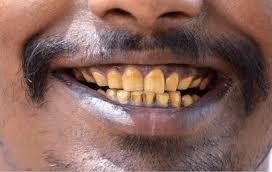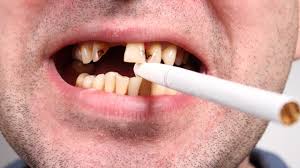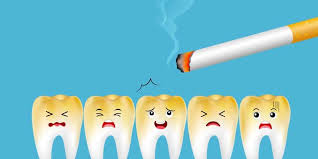As of 2025, it was approximated that there are about 1.26 billion smokers worldwide, representing 15.4 % of the global population. This is expected to keep soaring, with an estimated increase of about 14 million more smokers by 2029. Despite its prevalent use, smoking affects nearly every part of the body, including your mouth. While many people know about the risks smoking poses to the lungs and heart, the effects on oral health are often overlooked. Here’s a closer look at how smoking can affect your oral health, along with some helpful tips for quitting.
1. Increased risk of gum disease
One of the most significant risks smoking poses to your oral health is an increased likelihood of developing gum disease, also known as periodontal disease. Smoking weakens your immune system, making it harder for your body to fight off infections, including those that affect the gums. As a result, smokers are more susceptible to gingivitis. This is the earliest stage of gum disease, which can progress to more severe forms of the condition, like periodontitis.
The toxins in cigarette smoke can also cause inflammation of the gum tissue, leading to redness, swelling, bleeding, and even gum recession. If left untreated, gum disease can result in tooth loss and serious damage to the jawbone.
2. Stained teeth and bad breath
It’s no secret that smoking causes yellow or brown stains on teeth. Nicotine and tar in cigarette smoke can quickly discolour the enamel of your teeth, making them appear dull and unhealthy. Over time, these stains become more difficult to remove, even with regular brushing or professional cleanings.
In addition to stained teeth, smoking can also cause persistent bad breath, known as halitosis. The chemicals in tobacco linger in the mouth, leading to an unpleasant odour. Smoking also dries out the mouth, reducing saliva production, which is necessary for neutralizing acids and washing away food particles.

3. Higher risk of oral cancer
Smoking is one of the leading causes of oral cancer, including cancers of the mouth, tongue, lips, and throat. The carcinogens in tobacco smoke directly affect the soft tissues inside your mouth, increasing the likelihood of mutations that can lead to cancerous growth. Smokers are at a much higher risk for oral cancer than non-smokers, and the risks increase with the length of time a person has smoked.
4. Decreased healing ability after dental procedures
If you’re undergoing dental treatments such as tooth extractions, implants, or gum surgery, smoking can interfere with the healing process. Nicotine constricts blood vessels, which reduces blood flow to the healing tissues, making it harder for your gums and teeth to recover. Smokers are more likely to experience complications after dental surgery, such as infections or delayed healing.
5. Tooth loss
Due to its impact on gum disease, smoking can ultimately lead to tooth loss. Gum disease destroys the support structures of your teeth, including the bone and tissue, which can result in teeth becoming loose and eventually falling out. Smoking also makes it more difficult for your gums to reattach to your teeth, increasing the likelihood of tooth loss over time.

Tips for quitting smoking
Quitting smoking is not easy, but it’s one of the most impactful steps you can take to improve your oral health. Here are some strategies that might help you succeed:
- Set a quit date – Choose a specific date to quit and mentally prepare for it. This gives you a clear target and helps you stay focused.
- Seek support – Whether it’s through friends, family, or a support group, having people to encourage and motivate you can make a big difference in your journey.
- Nicotine Replacement Therapy (NRT) – Consider using nicotine patches, gum, or lozenges to reduce cravings and withdrawal symptoms as you quit.
- Avoid triggers – Identify the situations or environments that make you want to smoke and try to avoid them or replace the habit with a healthier activity, like chewing gum or taking a walk.
- Reward yourself – Celebrate your milestones along the way. Each day you stay smoke-free is an achievement, and rewarding yourself can help you stay motivated.
Our Take
Smoking takes a serious toll on your oral health, from gum disease to tooth loss and even oral cancer. However, quitting smoking is one of the best decisions you can make to protect your mouth and your overall well-being. Quitting smoking might not be easy when you do it on your own, but it can be made easier and more successful when you have someone guiding and cheering you along on your journey. What better place to get this than at your dentist’s office? Our dentists at Nairobi Sterling Dental Clinic have got you covered.
Our clinic has experienced and certified dental specialists, who will guide you on how to quit smoking and maintain good dental health. They will assess the current state of your dental health and provide necessary and worthwhile advice on how to prevent smoking from doing you further harm. Moreover, you will get tips on how to observe dental hygiene and attain optimum dental health. If you would like to let us help you with your journey, visit us at the Park Suites Building in Parklands for a consultation. Moreover, you can also book an appointment with our specialists or contact us for inquiries. Take charge of your health today by quitting smoking and let us help you walk that journey.

